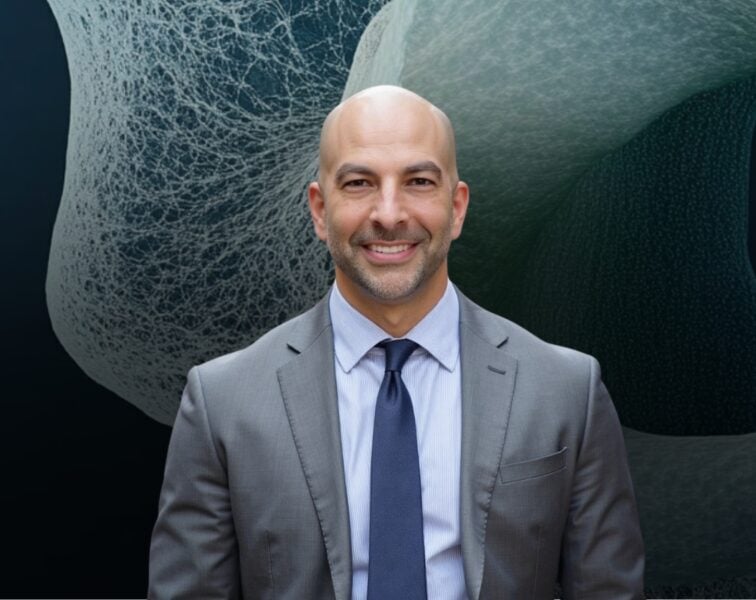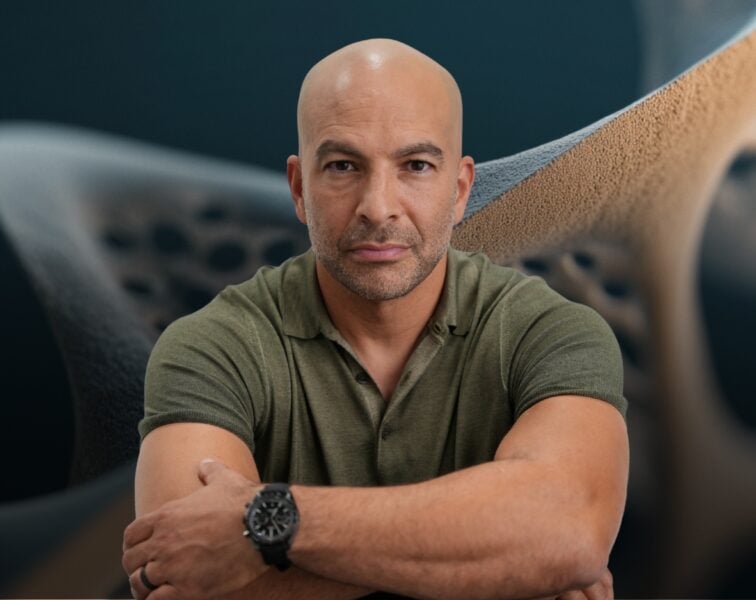Don Layman is a Professor of Food Science and Human Nutrition at the University of Illinois Urbana-Champaign. He has spent the past 40 years investigating the role of dietary protein in muscle protein synthesis. In this episode, Don describes how his decades of research have shaped his thinking around protein, muscle, anabolic factors, metabolism, and more. He explains the recommended dietary allowance (RDA) for protein: what it is, how it came about, and how it should serve only as a guide for the minimum protein necessary for survival rather than as an optimal level of protein intake. He provides an overview of the essential amino acids, explains the nuances of animal versus plant protein, and provides insights for determining protein quality, absorption rates, and how to best track your intake. He discusses the ideal timing of protein intake in relation to resistance exercise, how protein should be distributed among meals, and how limitations in protein utilization per sitting can impact those practicing time-restricted eating. Additionally, Don shares results from his clinical trials, including how a high-protein diet fared in terms of fat loss, and explains the differences in protein utilization between adolescents and adults and how the problem of reduced efficiency of protein utilization in older adults can be overcome.
Subscribe on: APPLE PODCASTS | RSS | GOOGLE | OVERCAST | STITCHER
We discuss:
- Don’s background: from growing up on a farm to studying nutritional biochemistry [2:30];
- Don’s philosophy on nutrition, muscle, and metabolism [6:30];
- The controversial relationship between saturated fat and atherosclerosis [18:15];
- The basics of protein and amino acids [25:45];
- Origin and limitations of the current recommended dietary allowance (RDA) for protein intake [32:15];
- Protein sources: determining quality, absorption rates, and how to track intake [41:15];
- Leucine, lysine, and methionine: three important essential amino acids [48:00];
- The vital role of ruminant animals in the production of quality protein [53:15];
- The differing needs and impacts of dietary protein for a 16-year old compared to a 65-year old [59:30];
- Consequences of protein deficiency in childhood [1:06:30];
- Muscle protein synthesis: ideal timing, small meals vs. big meals, and more [1:12:45];
- Protein needs of children [1:19:45];
- How important is timing protein intake around training? [1:24:15];
- The role of leucine in fatty acid oxidation by muscle [1:28:15];
- High protein diets for fat loss: Results from Don’s clinical trials [1:31:30];
- Influence of industry funding on nutrition studies [1:43:45];
- Don’s thoughts on plant-based and synthetic “meats” [1:48:45];
- Problems with epidemiological studies of dietary protein [1:56:30];
- More.
Get Peter’s expertise in your inbox 100% free.
Sign up to receive An Introductory Guide to Longevity by Peter Attia, weekly longevity-focused articles, and new podcast announcements.
Don’s background: from growing up on a farm to studying nutritional biochemistry [2:30]
- Peter has heard a lot about Don over the past couple of years from their mutual friend Layne Norton, who suggested they get together and go deeper down this nutritional pathway
- Nutrition is Peter’s least favorite subject only because he’s so tired of the religious aspect of nutrition
- He enjoys talking about nutrition through the lens of biochemistry
- Don was interested in biochemistry first
- Studying organic chemistry just seemed so boring and esoteric
- With nutrition, he could actually apply biochemistry to things people were interested in
What was it like growing up on a farm in Illinois?
- His dad lived to 97 and his mom to 102
- It was great, he was born in the ‘50s
- This was a time when agriculture was very poor in the US
- He learned about animal growth and reproduction
- He leaned about growing corn and soybeans
- He was very interested in food, he always had an interest in science, and this evolved to be a natural marriage
- He grew up in a small town; his school had about 400 people in it
In college Don first studied biochemistry and organic chemistry
- This was the serendipity of how he got into nutrition; he didn’t know anything about it
- He first went to Illinois State University to study chemistry
- He realized quickly he had no aptitude for inorganic chemistry, but he understood biochemistry pretty well
- This was during the Vietnam War and he was scheduled to go into the military
- He was totally unemployable
- So when the university offered him a graduate assistantship, he took it and got a master’s in biochemistry
- His mentor at the time said, “You really have a knack for this nutrition part of it. Why don’t you do a PhD?”
- He ended up at University of Minnesota doing a Ph.D. in nutritional biochemistry and fell in love with all of it
- There was no grand plan, but it fit his background of agriculture, foods, sports nutrition
- He fell into a group that was doing muscle metabolism and it just all fell together for him
Was Ancel Keys at the University of Minnesota at that time?
- No, he had left, but his legacy was there with Henry Blackburn, Ivan Frantz, and some of those individuals
- Don got that background while he was there and it certainly invested a lot of his early thinking of nutrition
- Layne Norton, who you’ve talked with before, has talked about how our thinking of nutrition evolves; “mine certainly has evolved”
Don’s philosophy on nutrition, muscle, and metabolism [6:30]
What was your underlying philosophy of nutrition circa 1975, when you were doing your Ph.D?
- His earliest thinking about nutrition involves his interest in animal growth and sports nutrition
- Very early he developed the philosophy that nutrition was really about two tissues, the brain and skeletal muscle
- If those two tissues were healthy, you were going to live a pretty good life
- Everything else is regulatory‒ the liver, the heart, the kidney, the gut
- Everything else adapts to your environment, but you have to focus on those first two
- Don says that “if you tailor your nutritional requirements around that thinking you end up with a much more sensible approach”
- He coined the concept that his colleague, Dr. Gabrielle Lyon and he always use‒ muscle centric nutrition
- If you keep muscle healthy, you’ve got a good shot at avoiding obesity, avoiding diabetes, avoiding cancer, etc.
“If you keep muscle healthy, you’ve got a good shot at avoiding obesity, avoiding diabetes, avoiding cancer, etc.” —Don Layman
Details about muscle
- Peter notes that muscle is our largest sink for glucose
- 75-80% of our glucose storage capacity exists within skeletal muscle
- Muscle is also an early depot for excess adipose tissue
- Once we start to let little droplets of fat accumulate within muscle cells, it leads to this process of insulin resistance
- This creates a problem in that it makes it harder for muscle to accept carbohydrates
- This leads to hyperglycemia and ultimately diabetes
How Don formulated his thinking about muscle
{end of show notes preview}
Would you like access to extensive show notes and references for this podcast (and more)?
Check out this post to see an example of what the substantial show notes look like. Become a member today to get access.

Don Layman, Ph.D.
Donald Layman is a Professor Emeritus at the University of Illinois Urbana-Champaign College of Agricultural, Consumer and Environmental Sciences in the department of Food Science & Human Nutrition. Don earned his B.S. in Chemistry and M.S. in Biochemistry at Illinois State University and his Ph.D. in Human Nutrition and Biochemistry at the University of Minnesota, St. Paul. His research focuses on understanding the protein and amino acid requirements and interrelationship between dietary protein and carbohydrates needed for adult health. In particular, his research seeks to understand the impact of diet and exercise on obesity, type 2 diabetes, and metabolic syndrome in adults. His work has helped to define the role of branched chain amino acids (BCAA) in skeletal muscle metabolism. BCAA provide an important energy source for muscle during exercise and also serve as a critical regulator of muscle protein synthesis during recovery. During exercise, oxidation of BCAA increases, resulting in production of the amino acid alanine and a rapid decline in plasma levels of BCAA. Amino acid supplements prevent this decline in plasma amino acids, enhance recovery of muscle protein synthesis and interact with insulin to help stabilize blood glucose. His research continues to define mechanisms for control of muscle protein synthesis and differences in dietary protein needs for men versus women and for adults with sedentary versus active lifestyles. Don currently consults for many food industry companies including Kraft, Nestle, Hershey, the Dairy Council, the Egg Board, and the Beef Board. [University of Illinois Urbana-Champaign]
Twitter: @donlayman



